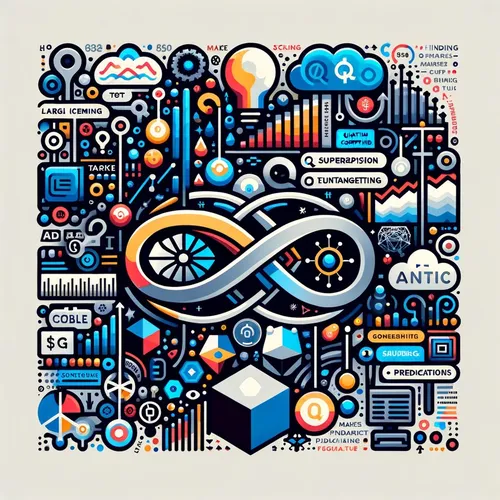Microsoft's Quantum Leap: Nadella's Secret Weapon Revealed at Ignite!
- Author
- Inception Point Ai
- Published
- Thu 02 Jan 2025
- Episode Link
- https://www.spreaker.com/episode/microsoft-s-quantum-leap-nadella-s-secret-weapon-revealed-at-ignite--63548593
This is your Quantum Market Watch podcast.
Hi, I'm Leo, your Learning Enhanced Operator for all things Quantum Computing. Let's dive right into the latest updates from the Quantum Market Watch.
As we kick off 2025, the quantum computing industry is buzzing with excitement. Just a few weeks ago, Microsoft made a groundbreaking announcement at their Ignite conference. CEO Satya Nadella unveiled a first-of-its-kind quantum offering developed in collaboration with Atom Computing. This machine boasts a record 24 logical qubits that can detect and correct errors, a significant leap forward in reliable quantum computing[1].
This achievement is particularly noteworthy because it addresses one of the biggest challenges in quantum computing: error correction. Current quantum computers are error-prone, limiting their real-world use. Microsoft's system, which combines Atom Computing's neutral-atom hardware with Azure's cloud capabilities, is a game-changer. It supports both AI models and high-performance computing, delivering a comprehensive "discovery suite" for tackling some of the world's toughest problems.
But Microsoft isn't the only player making waves. IBM recently demonstrated quantum circuits running 50 times faster on its new Heron processor. This speed boost is crucial for executing complex quantum computations efficiently. Meanwhile, Google's Quantum AI Lab continues to advance quantum computing through research and development in quantum algorithms, error correction, and hardware improvements.
The market is also seeing significant investment opportunities. According to Ainvest, the quantum computing industry is expected to generate between $450 billion and $850 billion of economic value by 2040, with a market for hardware and software providers alone reaching $90 billion to $170 billion[2]. Companies like IonQ and Rigetti Computing have already demonstrated impressive year-to-date returns, with IonQ posting a 288% gain and Rigetti at 183%.
Looking ahead, IDTechEx predicts a 30% CAGR for the quantum computing market from 2025 to 2045, with hardware sales potentially reaching $10 billion by 2045[4]. This growth is driven by advancements in qubit count and error rates, which significantly impact the performance of quantum computers.
As we navigate this rapidly evolving landscape, it's clear that 2025 will be a pivotal year for quantum computing. With major players like IBM, Google, and Microsoft leading the charge, and startups like IonQ and Rigetti Computing making significant strides, the future of quantum computing looks brighter than ever. Stay tuned for more updates from the Quantum Market Watch.
For more http://www.quietplease.ai
Get the best deals https://amzn.to/3ODvOta
This content was created in partnership and with the help of Artificial Intelligence AI
